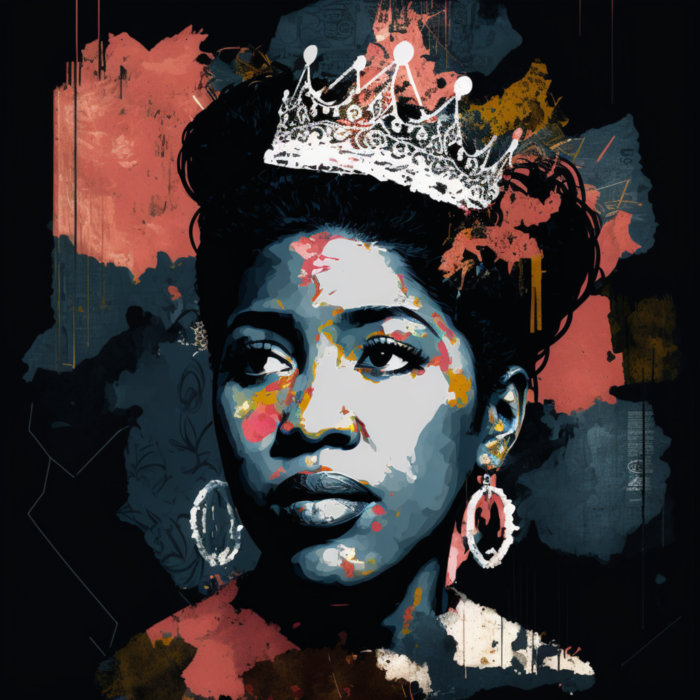
Aretha Franklin – Respect (Raw-Artes Edit) – Raw-Artes
this blog is GROOVY – check out great Soul, Funk, Jazz, Hip Hop, Bass, Breaks , Reggae, House n many more TUNES
Hey there, music lovers! 🎶 Today, we’re diving into the funky world of Franklin music—a delightful blend of rhythm and soul that brings joy to listeners around the globe. So put on your dancing shoes and let’s groove through the history!
First off, let’s get our bearings straight. “Franklin” in this context refers not just to a genre but also often represents the rich musical heritage from places like Franklin, Tennessee, which has its own unique vibe overlapping with country and blues. However, we’re going to keep it broad and explore how it ties into broader musical trends as well.
Around the mid-20th century, particularly in the 1950s and 1960s, you could find tons of talents emerging who blended rock ‘n’ roll with elements from various genres such as jazz, gospel (thank you Aretha!), folk, and more. This fusion is at the heart of what many folks consider “Franklin” sounds today.
Rhythm & Blues (R&B) played a massive role in shaping what would later be touched upon by countless artists coming out of Franklin. Smooth saxophones vibing alongside heartfelt vocals were all over those soundwaves. If you haven’t heard R&B classics like Ray Charles’ hits or Etta James belting out her soul—you are missing out!
With Nashville being just a hop away from Franklin—it’s no surprise that country music had an undeniable influence too! Artists like Johnny Cash mixed storytelling lyrics with strumming guitars creating something totally lively for squares looking for fun tunes! 🎸
In before times when music was spinning on turntables instead streaming through apps—I’m talking about vinyl days baby—the melting pot effect started cooking up sounds that didn’t fit purely into one box but mixed flavors together beautifully.
And here comes the funny part: Did you know Elvis Presley once tried to go incognito while visiting his favorite record shop? He wore sunglasses inside—a classic move right? Little did he know everyone still recognized him instantly; must have been hard hiding behind those iconic shades!
Now let’s talk about some legendary movers-and-shakers who called these traditions home:
Aretha Franklin
Sam Cooke
The Everly Brothers
Dolly Parton
As we rolled into the late ’70s onward—the influences continued morphing—disco fever spread like wildfire across dance floors where even some country bars caught rhythms bouncing off their walls! No judgment here; feel good jams unite us so dance as long as ya want—even if two-stepping wasn’t quite fitting disco lights…
Fast forward now; hip-hop artists sampling old school tracks resonate juicy nuggets sprinkled within hip-hop beats everywhere today highlight how enduring these melodies can be—from Eminem’s tributes backtracking roots shared among legends—to Lil Nas X redefining cross-genre collaborations echoing great moments created yonks ago nearby gleeful souls joining each beat during sunset jam sessions by bonfires sharing stories weaving magic throughout generations ahead…
When speaking frank (“pun intended”) about modern musicians inspired by Franklin styles—we see revitalized love blossoming across diverse platforms showcasing artistry bolstered beyond limits previously set aside amplifying voices resonating themes hello-from-days-long-past revived freshly anew yet again amid hearts entwined wherever anyone dare picks up instruments graced hands bear witness under stars shining bright above sharing songs written free chasing dreams high reaching levels confirming truth reigniting passion boundless amongst friends living life freely expressing themselves publicly hailed till dawn breaks each day again fuels unity amidst humanity striving toward brighter tomorrows filled vibrant melody floating everywhere—
So tap your toes dear reader remember next time someone chats regarding legacy tied deep down rooted beneath surface enjoy lighthearted sparks whenever nature teaches humans dance along every note flourishing hope peace warmth carry forth embracing marvelous ways connecting spirits one song at-a-time never letting laughter fade twinkling eyes reveal genuine smiles sprinkling joy thriving around us always ready conquer anything thrown our way groovin’ wide awake alive forevermore adding flavor spice filling life experiences splendidly daring express artistically true bliss found timelessness captured absolutely priceless held close near hearts no better tribute than embrace encompassing harmonious existence indeed bringing closeness bridging gaps connections forged lasting solidarity throughout journeys undertaken hand-in-hand building bridges reflecting extraordinary adventure lived fully turning everyday mundane moments magical following rhythms found ground ever searching beauty wherever willing roam quickly discovering treasured gems encountered traveling legacy continues reveal endless possibilities make memories sparkle brighter yet…
Rock On – Keep It Groovy Friends 🕺💃

Aretha Franklin – Respect (Raw-Artes Edit) – Raw-Artes